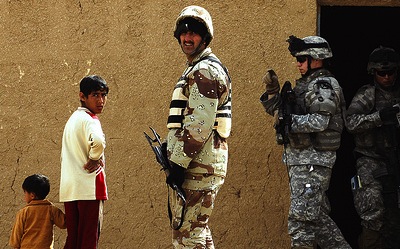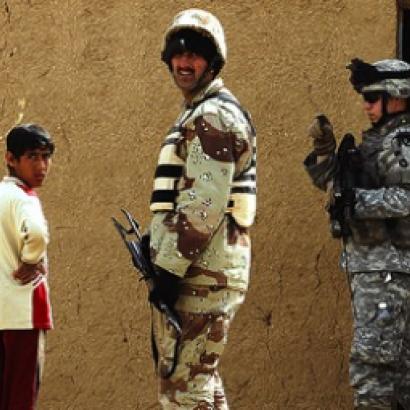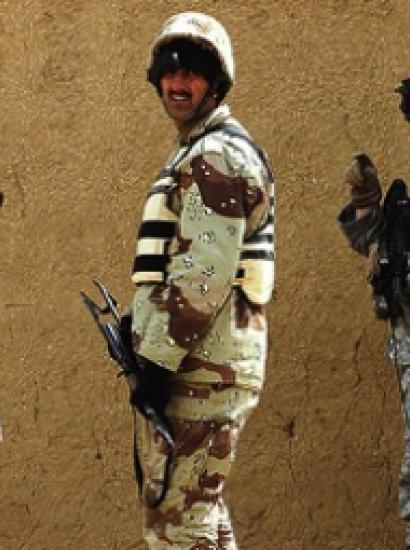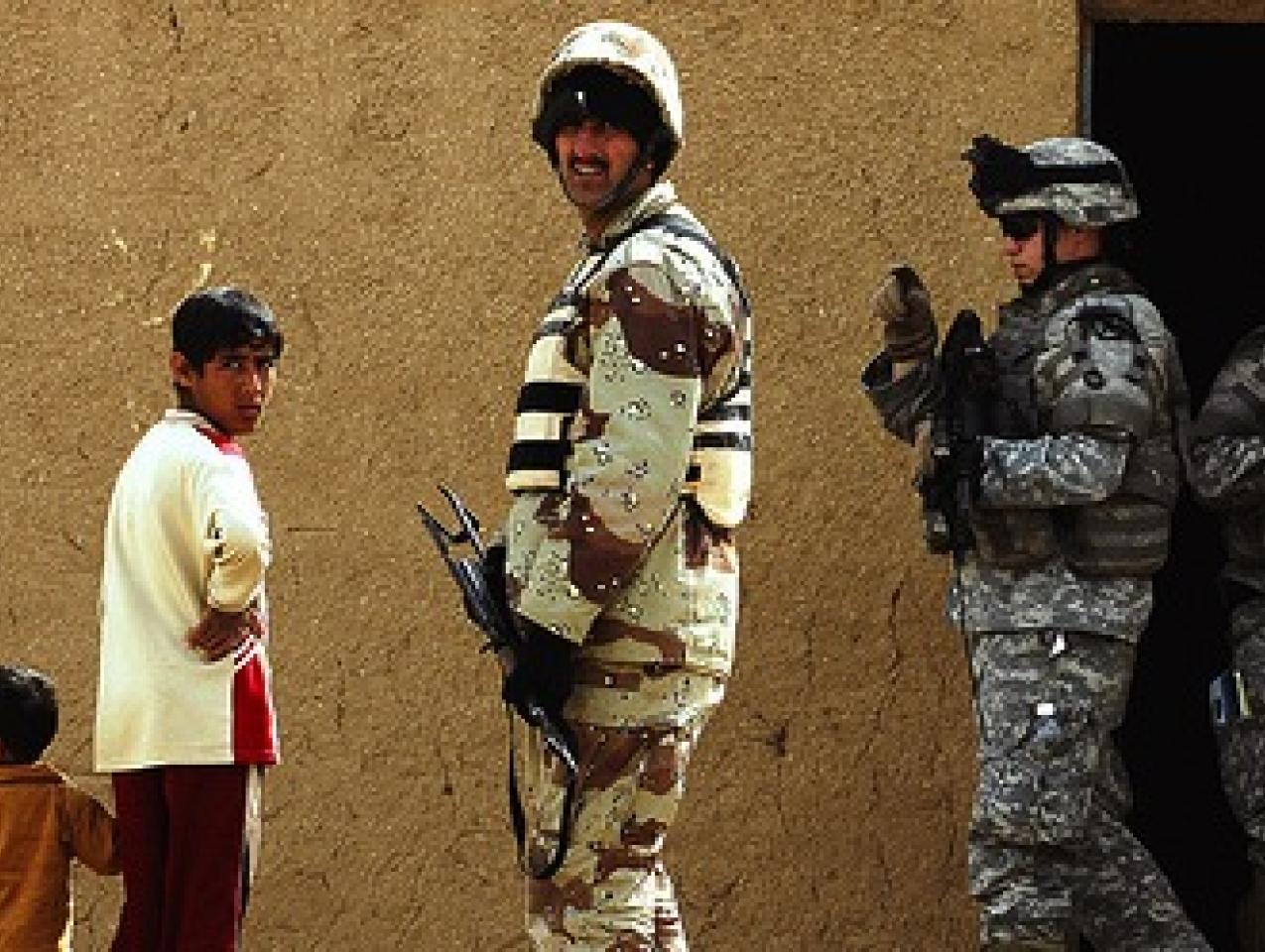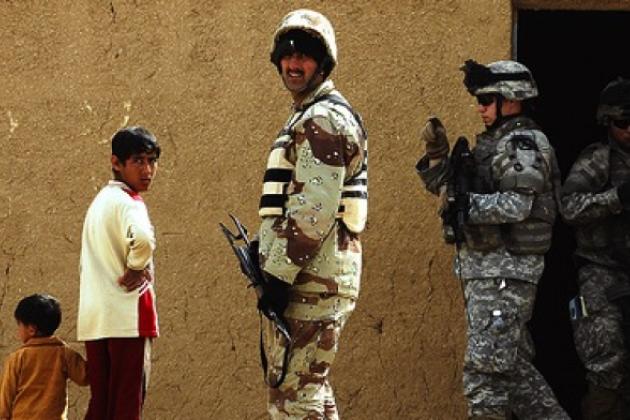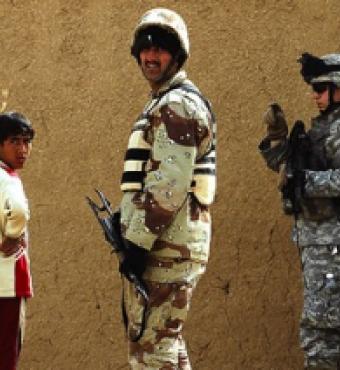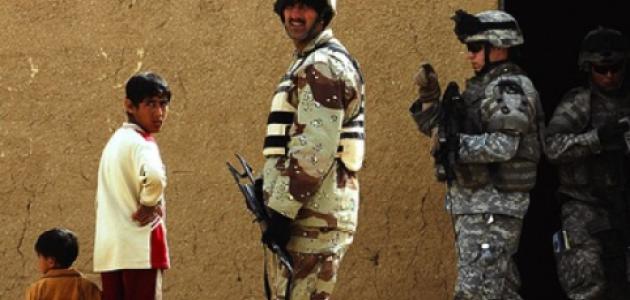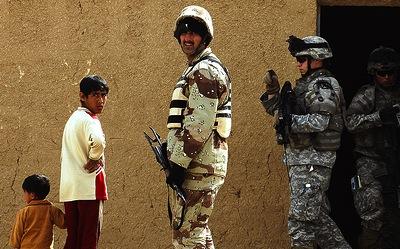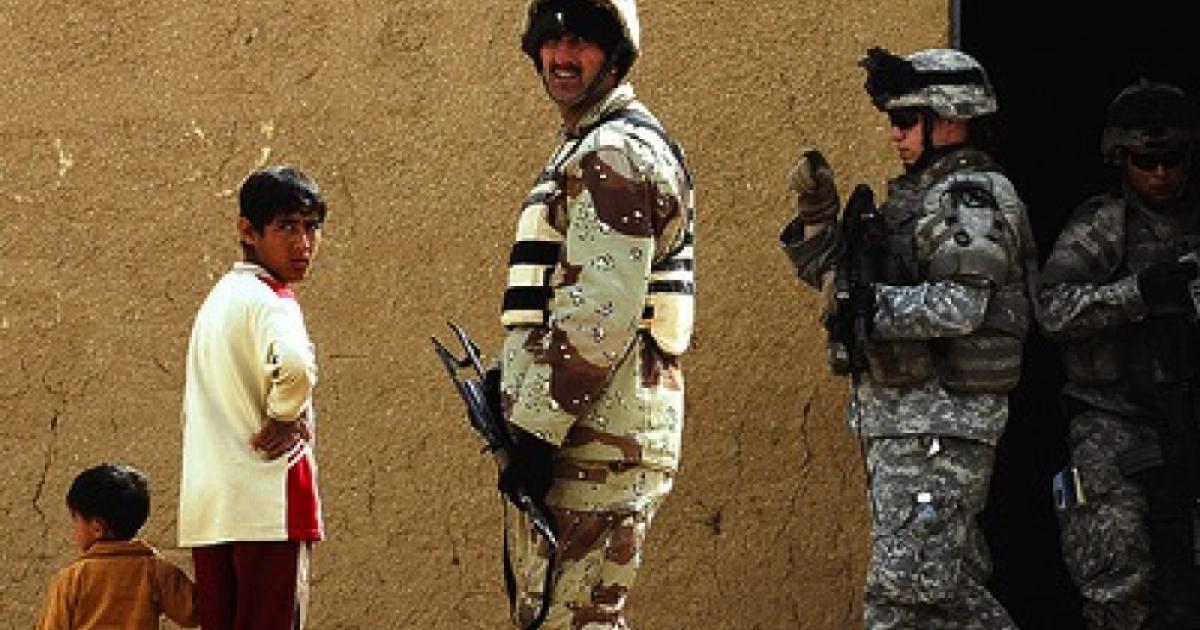- International Affairs
- US Foreign Policy
What a difference two years make. Little more than two years ago, Iraq seemed headed on a sure path to stability. The U.S.-Iraqi “surge” that ended the spiral of sectarian violence in 2007-08 culminated in the Iraqi electorate’s widespread rejection of sectarian parties in the provincial elections of early 2009. New cross-sectarian, nationalist coalitions were ascendant, the sectarian political space in which Al Qaeda and Shia militants thrived was dramatically reduced, and state institutions were finally recovering from their long post-2003 collapse. A new Iraqi state seemed to be emerging in which enduring U.S. interests—ensuring the stable flow of Iraq’s oil, denying Iraq as a base for terrorist groups, and preventing Iraq from destabilizing the broader region—would be secure.
Two years on, most of these positive trends are on the verge of being reversed, and 2012 promises to be a stormy year in Iraq. The troops have gone, but the dangers remain, and are gathering.
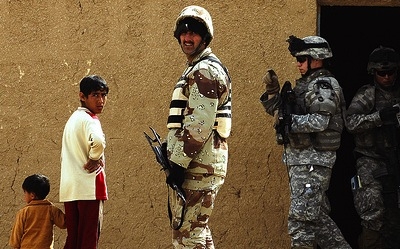
Photo credit: MATEUS_27:24&25
Foremost among them, the political pact among Iraq’s main parties—the accommodation that has guaranteed the dramatic reduction in violence since mid-2008—is unraveling. Whether driven by fear, or tempted by an opportunity not to be missed, or both, Prime Minister Nuri Maliki’s Da’wa party sparked a crisis on December 15 by moving to purge its top political rivals within hours of the ceremony marking the departure of the last U.S. forces.
In the first 96 hours without U.S. troops, Maliki and his allies ordered security forces to surround rival politicians’s homes, issued an arrest warrant against Vice President Tariq Hashimi, called for parliament to remove Deputy Prime Minister Saleh Mutlaq, and announced a terrorism investigation against Finance Minister Rafi al-Issawi. Taken together, these moves amounted to an attempt to decapitate Iraqiyah, the Sunni-majority political coalition, led by Ayad Allawi, which had won a narrow plurality in the elections of March 2010.
One month after U.S. troops departed from Iraq, the nation’s politics lie in disarray, with no clear route back to stability. The intervening weeks have offered Maliki a number of opportunities to defuse the situation, but at each turn he and his Da’wa party have instead chosen to escalate the confrontation.
When Iraqiyah’s parliamentarians and ministers staged a boycott in protest against the pressure being applied to their leaders, Maliki responded by threatening to appoint his own loyalists to head their ministries and to form a new government without them. As Iraq’s Sunni communities began to demonstrate against what they perceived as Maliki’s attempt to drive Sunnis out of a share of political power, Maliki’s office announced a deal that would allow the Iranian-sponsored Asa’ib Ahl al-Haqq militia to enter the political process. When Iraq’s Sunni vice president fled to Kurdistan, having sought refuge from Kurdish leader (and Iraqi President) Jalal Talabani, Maliki demanded that the Kurds surrender Hashimi for prosecution in Baghdad, while one of Maliki’s parliamentarians declared that Talabani should be charged with harboring a terrorist.
Throughout the ensuing standoff, Maliki’s security forces have continued a series of raids and arrests against Iraqiyah leaders’s offices and staffs in Baghdad. Every few days, the Maliki government or its opponents take another small step towards the cliff, beyond which lies political violence and possibly civil war. And every few days, the ongoing political struggle creates more space in which Iraq’s sectarian militants—especially Al Qaeda in Iraq among Sunnis and the old Mahdi Army among the Shia—can operate, as the recent horrific terrorist bombings in Baghdad and Iraq’s south have demonstrated.
Iraq's politics lie in disarray. There is no clear route back to stability.
As distressing as these developments are, they should not have come as a great surprise. They have been in the making for months now. For most of the past year, the question of whether to end or extend the U.S. troop presence in Iraq has obscured Da’wa’s campaign to grasp control of the Iraqi state for the long term. Having signed an agreement in 2010 to share power with Iraq’s other major parties, Maliki and Da’wa instead consolidated it in 2011, steering the Iraqi government back toward the disconcertingly familiar type of authoritarian regime that uses state power to intimidate political rivals and suppress popular opposition.
Nowhere is this consolidation more pronounced than in Iraq’s security sector, where until recently Maliki himself served as both Minister of Defense and Minister of Interior, despite the year-old agreement to share those portfolios with other parties. Inside Maliki’s office, his national security advisor controls Iraq’s intelligence agencies, while his son Ahmed and his military advisors have effectively taken control of the security forces and contractors guarding the Green Zone.
Having acquired the state’s coercive power, Maliki and his political allies have not hesitated to use it. In February and March of 2011, Iraqi security forces suppressed “Arab Spring” style demonstrations by killing almost 30 protestors across the country; in October and November, the Ministry of Interior arrested more than 600 former Baathist associates for their alleged involvement in an improbable coup plot. The killing of protestors in the spring made clear that the state would not tolerate popular dissent, while the wave of arrests in the fall made clear that the “national reconciliation” project, begun with U.S. encouragement in 2007-08, was over.
There are those on the U.S. side who believe that Nuri Maliki is an Iraqi nationalist desiring a strong relationship with the United States in order to counterbalance Iranian influence in Iraq. Maliki is our ally, they argue, the best guarantor of our long-term interests in Iraq, who wanted but could not politically deliver an agreement to extend the U.S. troop presence in the country, and is yet seeking ways to maintain a strong security relationship with us.
But this interpretation is fantasy. Our troops have left Iraq because Prime Minister Maliki and his Da’wa party saw no compelling interest in our staying. Nor do Maliki and Da’wa see a compelling interest, at present, in securing the country against Iranian influence. This is because he and Da’wa are embarked on a project to consolidate power and permanently eliminate Baathism and former Baathists from public life, aims that our military presence tends to impede but that the Iranian regime and its Iraqi militant proxies often support.
Meanwhile, the sectarian lines that divided Iraq’s communities in the civil war of 2005-08 are hardening once more. The Maliki government’s refusal to share power, coupled with the ongoing consolidation of Shia political power in Baghdad, has alarmed Iraq’s Sunnis, pushing them into the once-unthinkable position of demanding a deep devolution of power that amounts, in the minds of many Iraqis, to the soft partition of the state.
In its foreign policy, Iraq is moving into alignment with the Iranian regime.
Similarly alarmed by Maliki’s consolidation of power and their own marginalization in Baghdad, Iraq’s Kurds have taken measures designed to ensure the viability of a future independent Kurdish state, such as November’s signing of a mammoth deal with Exxon that allows the company to explore for oil in Iraqi Kurdistan.
Of course, the Sunnis and Kurds are not alone; distrustful of the gathering power of the Baghdad government, almost every one of Iraq’s 15 Arab provinces outside of the Kurdistan region is considering a campaign to demand regional autonomy. These and many similar tensions tear at the fabric of Iraqi society, indicating that after almost nine years of war, the fundamental drivers of the Iraq conflict remain unresolved. Simply put, Iraq’s major communities have not yet worked out how to live with one another in peace.
Nor has Iraq found a way to live peacefully in the region. In its foreign policy, the new Iraqi state is moving into alignment with the Iranian regime, opposing the United States on key policy issues, such as Bahrain and Syria, while apparently lining up on the Shia side of a widening regional sectarian divide. Indeed, in Syria, the Iraqi government finds itself at odds with its own Sunni citizens, who now harbor dreams of a Sunni state in Damascus. With 15 million Syrian Sunnis at their backs, Iraq’s Sunnis hope to extract a greater share of the state from the Shia power in Baghdad, or even to win back power in Iraq outright. It goes without saying that in an unstable region, these are perfect ingredients for broader conflict.
Then there is the persistent danger U.S. troops and officials face in Iraq. From their strongholds in Sadr City, southern Iraqi cities, and Iran, the Iranian-sponsored militias of the Sadr movement and its associates lie in wait, poised to possibly continue their long campaign of violence even in the absence of U.S. troops. “We will not accept any American presence in Iraq—military or otherwise,” Moqtada Sadr told Al-Arabiya TV in November. “In the event that they retain a presence, whether military or other—in the form of security companies and so on—they will be considered occupiers, and we will conduct resistance against them, whatever the price may be.”
His declaration should not be taken as an idle one; in June, Iraq’s Shia militants killed 15 Americans, the highest U.S. death toll in the country in two years, and though the intervening months have been quiet, the Sadrists have made clear their intention to attack the residual American presence—hundreds of U.S. officials, housed in one of the largest embassies in the world and protected by thousands of security contractors—until it is gone.
One senior Sadrist politician recently suggested that if the United States would not leave voluntarily, then the U.S. embassy could be forced to move to Amman, Jordan and do its work from there. Iraqi government leaders, meanwhile, have been curiously silent about this matter of a political party in the country’s governing coalition effectively declaring war on the diplomatic mission of an allied nation with whom Iraq supposedly has a strategic partnership.
After nine years of war, the drivers of the Iraq conflict remain unresolved.
Putting aside the issue of America’s strategic interests in Iraq, there is also the question of America’s moral commitments there. In the aftermath of our withdrawal, America’s abandoned local friends—those Iraqis who worked with or for the United States over the past eight years—face the prospect of being penalized as “collaborators,” in danger of being purged from public life, or worse. In the Iraqi military, key pro-American officers have begun to lose their positions. In southern communities and Baghdad, our NGO partners have begun closing up shop, pressured by local Sadrists and other Shia political groups.
Countrywide, thousands of former U.S. interpreters, clerks, and service workers are under pressure and threat of reprisals. According to Moqtada Sadr, they are “traitors” who worked for the “occupiers” and thus must be “boycotted,” i.e. prevented from holding senior positions in any field. For now, the Iraqis who were most loyal to us must hide their U.S. certificates of appreciation, invent cover stories, and wait for better days.
It didn’t have to end this way. As late as the fall of 2009, a stable, democratic Iraq seemed within reach, one in which Iraq’s communities could agree to peacefully share power without the need for U.S. troops as guarantors of the pact. But that positive momentum was arrested in the parliamentary elections of 2010, when the Shia-dominated parliamentary de-Baathification committee—associated with Ahmad Chalabi—barred hundreds of candidates from running before the election and attempted to unseat dozens of winners after the election.
Our failure to stop this Iraqi version of Iran's Guardian Council—which, with Maliki’s tacit support, mainly targeted candidates from Ayad Allawi’s Iraqiyah coalition—meant that the election was conducted under a dark cloud that has never lifted. The affair poisoned relations between Iraqiyah and Maliki’s State of Law coalition, making our later aim of organizing a majority government comprised of those two blocs exceedingly difficult.
Not that we retained enough leverage to press for a positive outcome in any case. In retrospect, the decision to reduce the U.S. troop presence in Iraq by 50 percent during the government formation interregnum of 2010 must be seen as a strategic error that dissipated American influence when it was needed most, leaving Iraqis with the impression that we were more concerned with the physical security of the ballots and polling places than with the election’s political outcome.
The troop reduction thus signaled a decoupling of our military campaign from our political objectives in Iraq, a reversal of the successful 2007-08 Petraeus-Crocker strategy of ensuring that all military activities supported political ends. Most importantly, the reduction signaled a lack of long-term American commitment to Iraqi politicians who were casting about for long-term support.
Historians will puzzle over how a nine-year American military campaign resulted not in democracy, but in an Iraq led by a would-be strongman, riven by sectarianism and separatism, and increasingly aligned with America’s regional adversaries. The United States does not yet seem to understand what it has wrought in Iraq, and certainly has not had an honest debate about our enduring interests in Iraq and how to achieve them.
Most American observers have hailed the departure of U.S. troops from Iraq as a victory of sorts, while according Iraq little value in the hierarchy of our foreign policy interests, despite the country’s importance to the global economy and to the politics of a vital region undergoing profound change.
If the current trends continue, the instability of post-American Iraq—as well as its hostility to our influence and presence—may far exceed our planned capacity to manage it. Absent a sober reappraisal of our interests, position, and relationship with the emerging Iraqi state, we must be content to see Iraq drift into an adversarial camp or into civil war for years to come. Perhaps, in the end, this is what comes of having declared an end to a war that is not over.







